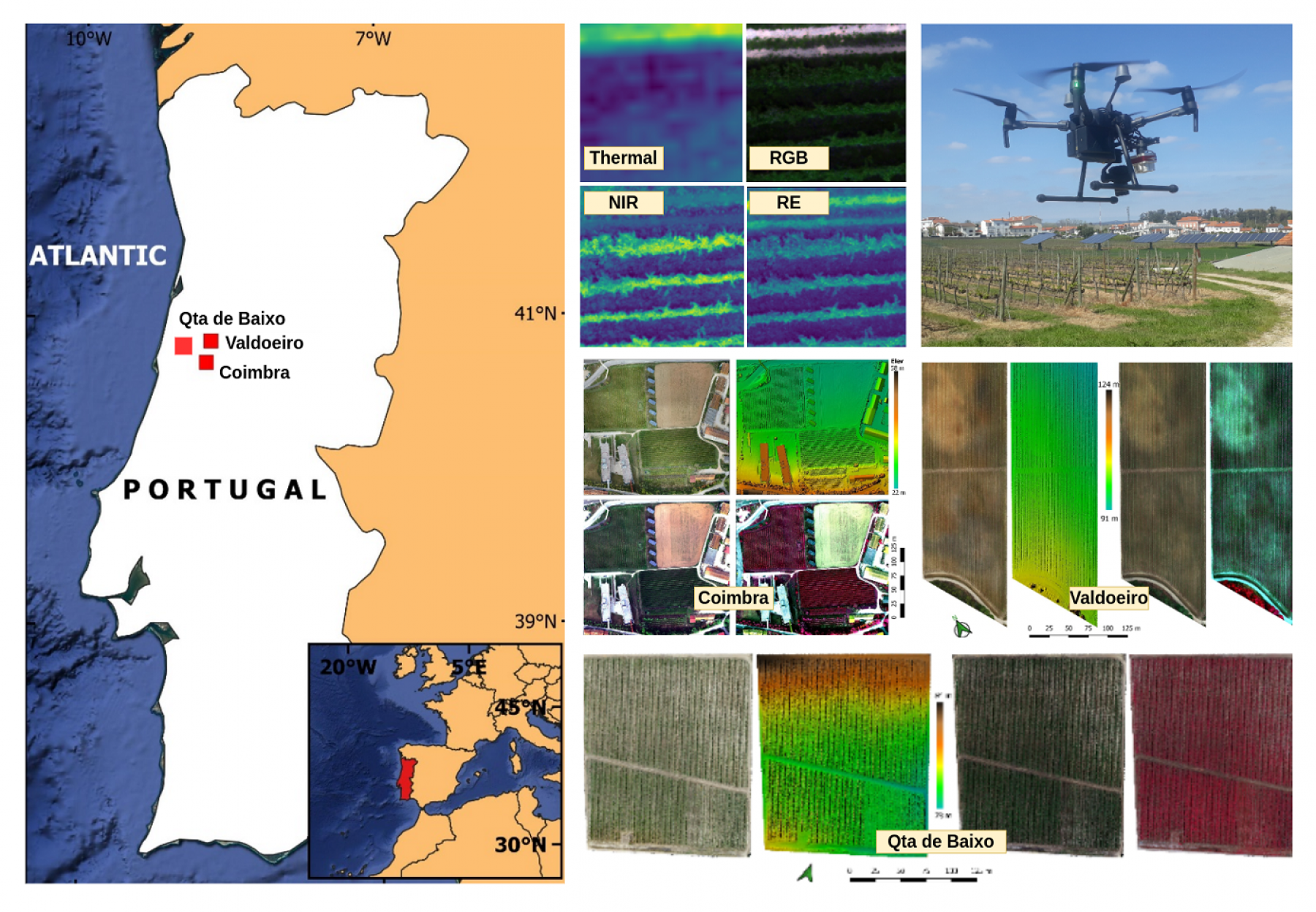Scientists from the University of Coimbra test new intelligent monitoring systems for vineyards
The research team studied three vineyards in central Portugal
English version by Diana Taborda
A multidisciplinary team led by researchers of the Institute for Systems and Robotics (ISR) of the Faculty of Sciences and Technology of the University of Coimbra (FCTUC) has explored new technological approaches to vineyard management, leading the way to the development of non-invasive and efficient monitoring systems that allow immediate and targeted action to be taken in the event of diseases and pests, improving production and reducing the harmful impact on the environment.
The study had the participation of researchers from the Institute for Systems Engineering and Computers (INESC Coimbra) and the Agrarian School of Coimbra (ESAC) in the scope of the project AI+Green - Intelligent Automation in Precise Agriculture, funded by MIT-Portugal and the Portuguese Foundation for Science and Technology, which aims to improve the accuracy and reliability of monitoring and detection of pests and diseases in vineyards.
Three vineyards in central Portugal - Coimbra, Valdoeiro and Quinta de Baixo - managed according to conventional practices, but with different biophysical characteristics, were studied for 12 months. The approaches explored and tested by the scientists were based on Deep Learning systems (deep learning, artificial intelligence), using spatial-temporal information obtained through remote sensing (satellite) and drones.
The study makes a strong case for the use of a dual camera to collect data in vineyards - using an unmanned aerial system (UAS) equipped with a dual imaging sensor payload, namely a high-resolution RGB camera and a five-band multispectral and thermal camera - to contribute to the development of precision agriculture, given that "promoting more efficient agriculture is essential to improve food quality and safety without compromising environmental sustainability". Although this sector has benefited in a modest way from technological advances in other sectors such as industry, robotics, intelligent vehicles, etc., it remains a predominantly manual and inefficient sector. Precision farming promotes the use of technology (software and hardware) in applications such as crop protection, monitoring and management.", says Tiago Barros
The study was published in the journal Computers and Electronics in Agriculture. The scientific paper, with the title “Multispectral vineyard segmentation: A deep learning comparison study”, is available at: https://doi.org/10.1016/j.compag.2022.106782.

